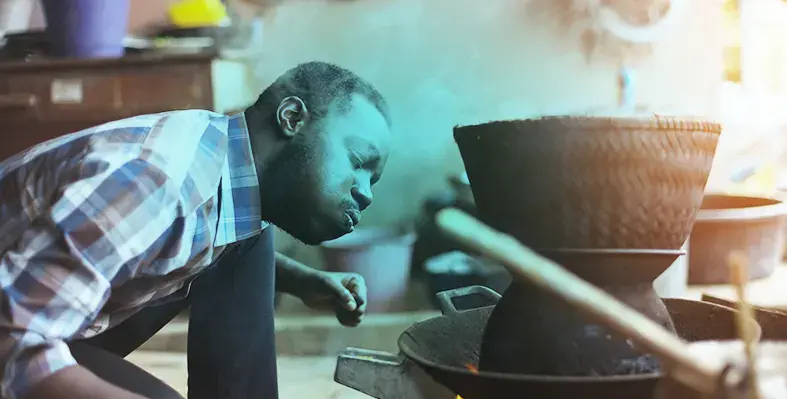The International Energy Agency (IEA) and the African Development Bank (AfDB) hosted the first ever high-level summit on providing clean cooking access in Africa
Co-chaired by Tanzanian and Norwegian government leaders, AfDB and the IEA, close to 60 countries alongside numerous companies and development institutions were represented at the Summit on Clean Cooking in Africa which took place in Paris.
Together, participants sought to take on the challenge that more than two billion people are affected by a lack of access to clean cooking, with more than half living in Africa. Here, cooking is typically conducted over open fires and basic stoves, making use of charcoal, wood, agricultural waste and animal dung as fuel. This can lead to harmful toxic fumes and smoke being inhaled – representing the second leading cause of premature death on the continent – and limits opportunities for education, employment and independence due to the time spent gathering fuel which is also detrimental to the environment.
President Samia Suluhu Hassan of Tanzania, commented, “Ensuring clean cooking access for all in Africa needs adequate, affordable, and sustainable financing for appropriate solutions and innovations; adequate global attention; and smart policies and partnerships. Successfully advancing the clean cooking agenda in Africa would contribute towards protecting the environment, climate, health, and ensuring gender equality. This Summit underscores our commitment to advancing this agenda and providing a framework towards universal adoption of clean cooking fuels and technologies across the continent.”
According to the IEA, the tools for enabling clean cooking access are readily available and affordable but progress in many African countries has lagged compared to other regions. It was against this backdrop that more than 1,000 delegates attended the Summit, to mark a turning point on an issue overlooked for too long. In Paris, approximately US$2.2bn was mobilised for this cause in financial pledges from both governments and the private sector.
Solving the clean cooking challenge
“This Summit has delivered an emphatic commitment to an issue that has been ignored by too many people, for too long,” remarked IEA executive director Fatih Birol. “We still have a long way to go, but the outcome of this Summit, US$2.2bn committed, can help support fundamental rights such as health, gender equality and education while also reducing emissions and restoring forests. And the commitments announced today go beyond the money alone – they set out concrete steps on how governments, institutions and the private sector can work together to solve the clean cooking challenge this decade. Going forwards, we will rigorously track the commitments announced today to make sure they’re met on time and in full – and continue to do our utmost to bring greater resources and attention to this critical issue.”
AfDB President Akinwumi A. Adesina, added, “At the African Development Bank, we are delighted to play a leading role alongside the International Energy Agency (IEA), Tanzania and Norway, to definitively tackle lack of access to clean cooking, that affects a billion people in Africa. In concert with countries, we will increase our financing for clean cooking to US$200mn annually over the next decade, while also scaling-up the provision of blended finance for clean cooking through the Sustainable Energy Fund for Africa (SEFA).”
Following the summit, the IEA has indicated that it will employ a ‘double-lock system’ to ensure that momentum behind clean cooking does not slow in the coming months and years. This will include using effective methods to ensure that pledges and commitments are fulfilled, tracking them carefully to make sure the money is spent in a timely manner and reaches those in need. In addition, the IEA will continue to play a convening role to engage more willing partners and generate new funds to help meet the US$4bn a year in capital investments required between now and 2030.
Prioritising clean cooking has been identified as a priority for the IEA in 2024. Find out more at: https://africanreview.com/energy/iea-prioritises-clean-cooking-access-in-africa












